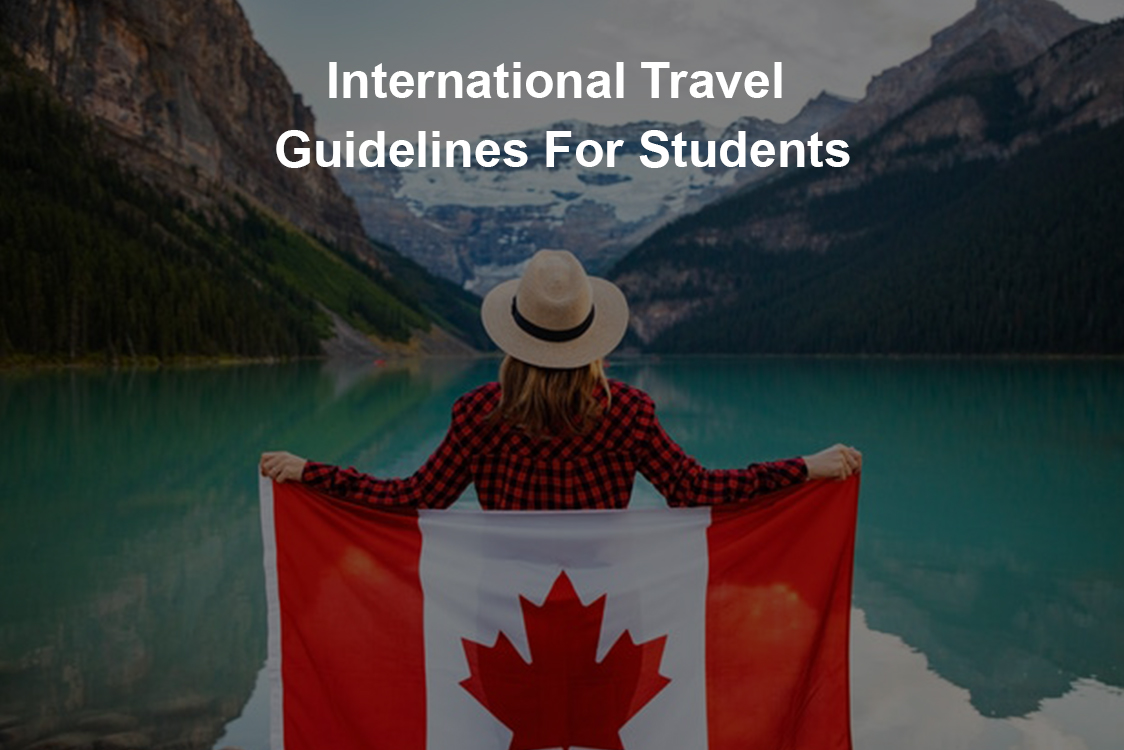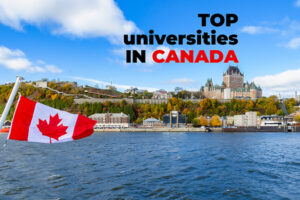All geared up for your academic journey to Canada? It’s a no-brainer why Canada continues to maintain its hold on international students. Statistics Canada recently reported an increase in immigrant wages, especially for those with post-secondary education who have worked in the Canadian labour market.
When the world has closed its doors in a pandemic-stricken era, Canada remains a front runner in accepting and attending to foreign nationals entering its borders. However, since Omicron has reared its head, the Canadian Government has prudently raised its safety measures.
General Guidelines for Students
The Canadian government has tightened its reins on travel and quarantine restrictions. As of January 15, 2022, under the revised travel guidelines, only fully vaccinated international students above the age of 18 years will be allowed entry. Only vaccines approved by the Canadian government will be accepted for travel to and within Canada. Restrictions have however been eased for international students under the age of 18.
All international students must be enrolled at a designated learning institution (DLI) equipped with a COVID-19 readiness plan before their arrival. A DLI is verified by a province or territory as having appropriate measures and safeguards to ensure student safety with respect to quarantine.
Additionally, it is mandatory for international students to enter Canada with a 14-day quarantine plan set in advance to comply with the Canadian Quarantine Act. It should be based on the province or municipality where the student plans to reside.
General Guidelines for Accompanying Family Members
Immediate family members may be allowed to accompany students and enter Canada. This includes a minor student’s parent or legal guardian to provide care during quarantine and the remainder of the student’s stay in Canada. A student’s spouse or dependent child(ren) may be allowed in the case of major students. However, the reasons to accompany a student must be shown to be non-discretionary/non-optional with no recourse.
Accompanying family members must comply with the general guidelines for travellers in Canada. Unvaccinated foreign citizens who do not qualify for an exemption will be barred from entering Canada. Fully vaccinated travellers arriving from any country other than the United States are now subject to testing on arrival. They are required to observe an additional quarantine at an appropriate site before negative test results are confirmed.
People who show symptoms of COVID-19 upon arrival at the border will be referred to an official from the Public Health Agency of Canada and will be required to self-isolate.
However, Border Officials reserve the right to determine who can enter the country and whether incoming travellers must be quarantined.
A COVID Canon for Students
Given the above restrictions, make sure you tick off these boxes before leaving for Canada:
- Verify whether your University or Institution is included in the list of provincially approved institutions on the IRCC website.
- Go through the most recently updated Travels, Testing, and Borders official page of the Government of Canada.
- Check whether you qualify as a fully vaccinated traveller. Evaluate the drugs and vaccines concerning COVD-19 that have been expressly approved by the government of Canada. However, note that currently, it is not mandatory to get a booster dose to be regarded as fully vaccinated in Canada.
- Check for additional vaccination requirements for entry and residence in individual universities.
- Prepare your additional documents required specifically by a University or Institution that you’re scheduled to attend. For further information, always stay in the loop of communication with an immigration consultant.
- Make sure you have adequate and appropriate health coverage. A thorough probe on popular international private health insurance will put your health cover concerns to rest. Share your final quarantine plan with Canadian Border Services Agency (CBSA) on ArriveCAN.
- Go through relevant vaccination proofs and quarantine plan requirements and other travel information on the ArriveCAN portal within 72 hours before arrival, unless exempt from the requirement. However, note that the finality of the decision is determined by a government representative at the border.
- Go through the official COVID 19 guidelines and advice for federal quarantine.
- Get yourself tested for COVID-19. A negative test result is mandatory 72 hours before you board your flight or cross the land border. Persons who continue to test positive despite having recovered may give a positive COVID-19 molecular test according to pre-entry test requirements.
- Schedule an airport COVID test in advance to save time on arrivals.
- Follow the instructions on pre and post-arrival on ArriveCAN to the T.
- Monitor yourself constantly and refrain from travelling if you experience COVID 19 symptoms.
- Post your arrival, government officials will evaluate your necessary documents which include ArriveCAN receipt, test results, proof of vaccination, quarantine plans, etc. You can be subjected to an additional no-cost COVID test on arrival.
Be wary that failure to comply with the provisions of the Quarantine Act is an offence punishable under Canadian Law. It can attract a fine of up to $750,000 and/or imprisonment for up to six months. You may be subjected to a spot test for verification of compliance.
International students may also face prohibition of entry, loss of status, and removal from Canada. These rules apply to minors as well.
With the surge of the new omicron wave, Canada is facing a backlog of visa applications lined up for approval. The Indian Express recently reported that the omicron wave distress has affected a decrease in Canadian study visa approvals for Indian students.
Regular student visa applications have taken a significant blow rather than the student visa application falling in the Student Direct Stream (SDS) category. SDS program allows students from 14 countries for an expedited study visa that takes approximately 20 days to process. Non-SDS visa approvals seem to be dwindling with the increase in omicron-related cases.
If you’re a prospective student traveller, it is suggested that always keep caution and information in your radar. Rank and assess the institutes and programs that suit your academic background and credentials. Your travel plans must be consolidated and thoroughly in sync with the COVID19 travel guidelines to avoid any inadvertent errors that could render your plans bust. Always stay in the loop of updates and monitor your health before you embark on your academic journey to Canada.
If you want to get admission in any college in Canada, contact us to begin planning your journey.




